If you’re feeling weighed down by your loan, you’re not alone. Personal loans can be a great way to consolidate debt or finance a large purchase, but they can also become a burden if you’re struggling to make payments. Fortunately, there are strategies you can use to pay off or get out of a personal loan faster and become debt-free.

Understanding Personal Loans Before you can start paying off your loan, it’s essential to understand what it is and how it works. A personal loan is an unsecured loan that you can use for various purposes, such as consolidating debt, financing a home renovation, or paying for a wedding. Unlike a secured loan backed by collateral, a personal loan is not tied to any specific asset.
Strategies to Pay Off Personal Loans Quickly Once you understand the basics of personal loans, you can start implementing strategies to pay off your debt faster. One of the most effective ways is to make biweekly payments instead of monthly payments.
By making a payment every two weeks instead of once a month, you’ll make an extra payment each year, which can help you pay off your loan faster. Another strategy is to make additional payments whenever you can. Even if you can only afford an extra payment every few months, it can still make a big difference in the long run.
Key Takeaways
- Understand what a personal loan is and how it works before you start paying it off.
- Making biweekly payments and paying extra whenever possible are effective strategies to pay off your personal loan faster.
- Becoming debt-free can provide numerous benefits, such as reducing stress and improving your credit score.
Understanding Personal Loans
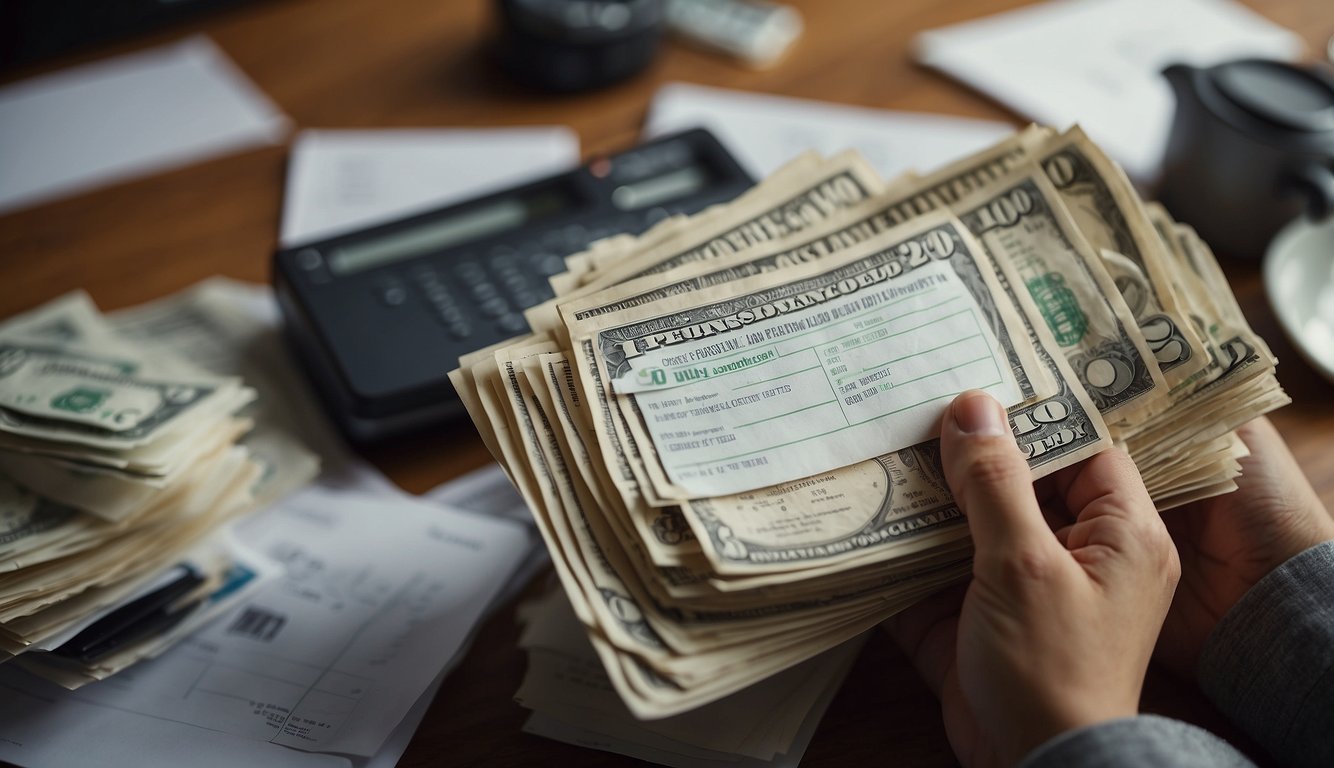
If you’re considering taking out a personal loan, it’s crucial to understand the basics. Personal loans are unsecured, meaning they are not backed by collateral such as a car or a house.
They are typically repaid in fixed monthly instalments over a set period, usually one to seven years.
The Basics of Personal Loans
Personal loans can be used for various purposes, including debt consolidation, home improvements, or unexpected expenses. When applying for a personal loan, you’ll be approved based on your creditworthiness, income, and other financial factors.
It’s essential to borrow only what you need and can afford to repay comfortably.
Interest Rates and Their Impact
Interest rates on personal loans can significantly impact the total amount you repay. The rate you receive is determined by factors such as your credit score, income, and the loan amount.
Be sure to compare offers from different lenders to secure the most favourable rate. Lower interest rates can save money and help you pay off the debt faster.
Credit Score Considerations
Your credit score plays a critical role in the personal loan application process. Lenders use it to assess your creditworthiness, determining the interest rate and loan terms you qualify for.
Maintaining a good credit score by making timely payments and keeping credit card balances low can improve your chances of securing a lower interest rate on a personal loan.
Strategies to Get Out of a Personal Loan Quickly
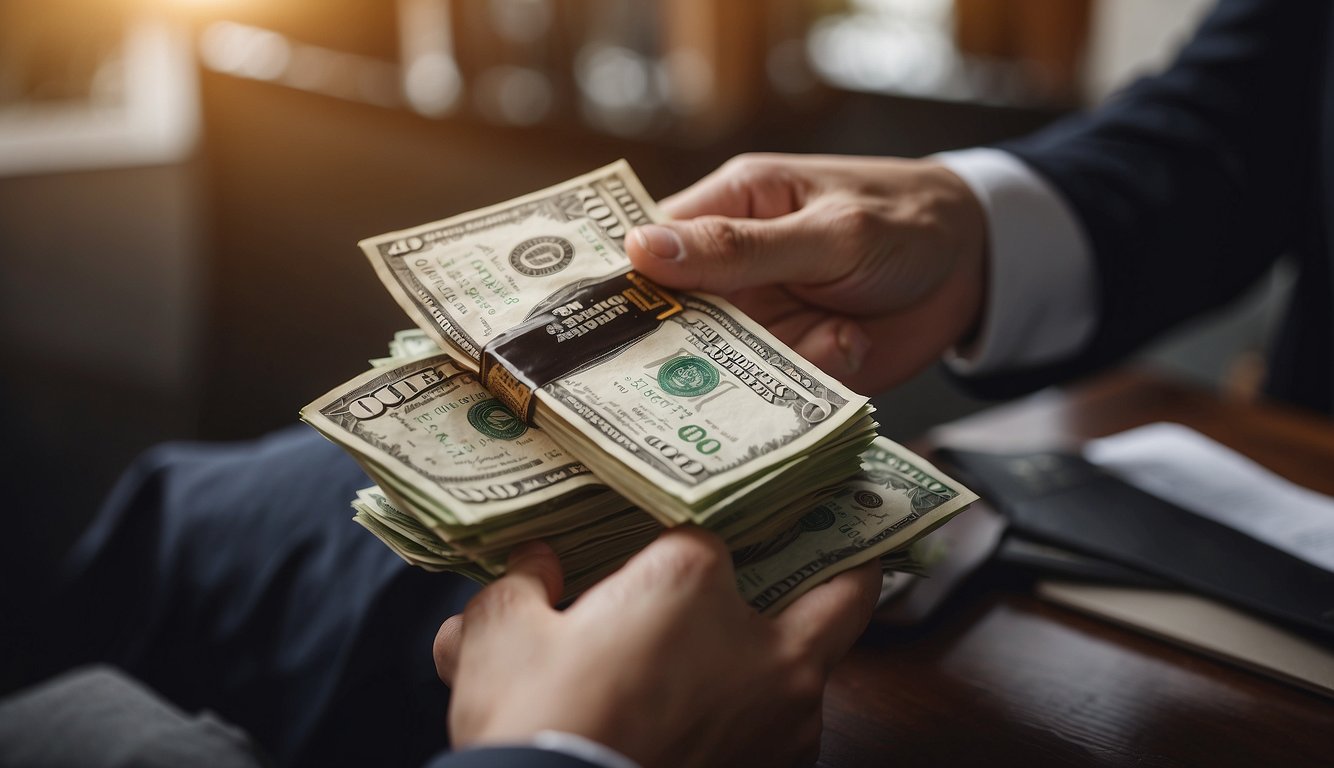
If you’re looking to get out of personal loan debt quickly, there are several strategies you can use. Here are some of the most effective:
Get Out of a Personal Loan: Snowball vs Avalanche Methods
When it comes to paying off personal loans, there are two main methods: the snowball method and the avalanche method. With the snowball method, you focus on paying off your smallest debts first, while with the avalanche method, you focus on paying off your debts with the highest interest rates first.
Both methods have their benefits, so it’s up to you to decide which one is right for you. If you’re looking for a quick win and some motivation to keep going, the snowball method might be best. On the other hand, if you want to save money on interest in the long run, the avalanche method might be a better choice.
Get Out of a Personal Loan: Making Extra Payments
One of the most effective ways to pay off your personal loan quickly is to make extra payments whenever you can. Even if it’s just a small amount, every little bit helps. By making extra payments, you can reduce the amount of interest you have to pay and pay off your loan faster.
To make extra payments, you can try cutting back on some of your expenses or finding ways to earn extra income. For example, you could sell some of your belongings online or take on a side hustle.
Get Out of a Personal Loan: Balance Transfer Options
Another strategy to consider is using a balance transfer credit card. With a balance transfer, you can transfer your personal loan debt to a credit card with a lower interest rate. This can save you money on interest and help you pay off your loan faster.
However, it’s important to be careful with balance transfers. Make sure you understand the terms and conditions of the credit card and be aware of any fees that may apply. Also, be sure to pay off the balance before the introductory period ends, as the interest rate will likely increase after that.
By using these strategies, you can pay off your personal loan quickly and enjoy the benefits of being debt-free.
Get Out of a Personal Loan: Budgeting and Managing Expenses
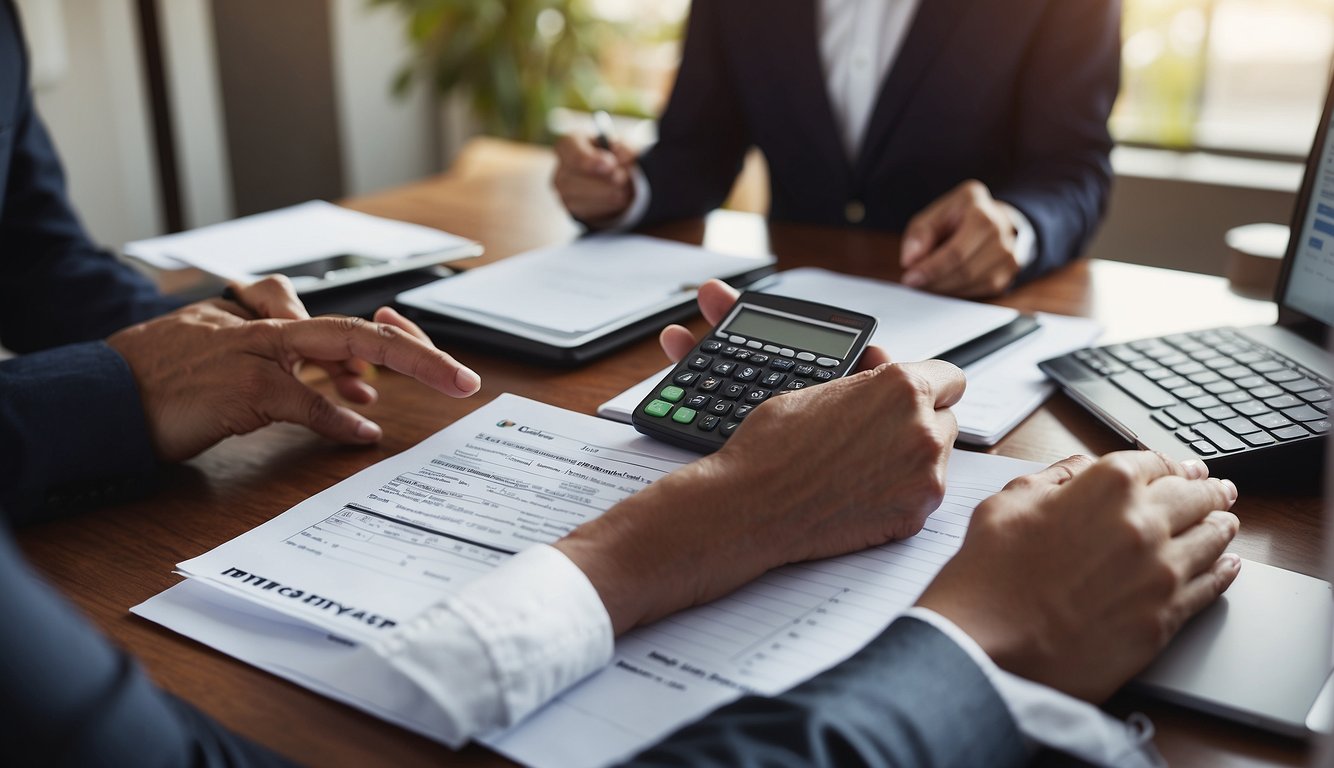
Getting out of a personal loan requires careful budgeting and managing your expenses. By creating a robust budget, cutting down unnecessary expenses, and increasing your income, you can pay off your loan faster and become debt-free.
Creating a Robust Budget
Creating a budget is the first step towards managing your expenses and getting out of debt. Start by calculating your monthly income and expenses. List all your sources of income, including your salary, side hustles, and any other sources of income. Then, list all your expenses, including rent, utilities, groceries, and any other bills.
Next, categorise your expenses into fixed and variable expenses. Fixed expenses are those that remain the same every month, such as rent and car payments. Variable expenses are those that change every month, such as groceries and entertainment.
Once you have a clear understanding of your income and expenses, create a budget that allows you to pay off your loan faster. Allocate a portion of your income towards paying off your loan, and make sure to stick to your budget every month.
Get Out of a Personal Loan: Cutting Down Unnecessary Expenses
Cutting down on unnecessary expenses is another way to pay off your loan faster. Look at your variable expenses and identify areas where you can cut back. For example, you could reduce your dining out expenses by cooking at home more often. You could also cancel subscriptions that you don’t use or need.
Small changes in your spending habits can add up over time and help you save money. Use the money you save to pay off your loan faster.
Increasing Your Income
Increasing your income is another way to pay off your loan faster. Consider taking on a side hustle or freelancing to earn extra money. You could also ask for a raise or look for a higher-paying job.
Use the extra income to pay off your loan faster. The more money you can put towards your loan, the faster you can become debt-free.
By following these tips, you can create a budget, manage your expenses, and increase your income to pay off your personal loan faster. Remember to stick to your budget and make small changes in your spending habits to save money. With dedication and effort, you can become debt-free and enjoy the benefits of financial freedom.
Get Out of a Personal Loan: Alternative Debt Relief Options

If you are struggling to pay off your personal loan, there are alternative debt relief options that can help you get out of debt fast. Here are some options to consider:
Debt Consolidation Loans
A debt consolidation loan is a type of loan that allows you to combine all of your debts into one loan with a lower interest rate and a longer repayment term. This can make it easier to manage your debt and reduce your monthly payments. With a debt consolidation loan, you can pay off your personal loan and other debts, and then make one monthly payment towards the new loan.
Debt Settlement
Debt settlement is an option where you negotiate with your creditors to settle your debts for less than what you owe. This can be a good option if you are behind on your payments and cannot afford to make your monthly payments. Debt settlement can help you get out of debt faster and for less money than if you were to continue making your monthly payments.
Considering Bankruptcy
If you are unable to pay off your debts through other means, bankruptcy may be an option to consider. Bankruptcy can help you get out of debt and start fresh, but it should only be considered as a last resort. Bankruptcy can have serious consequences, such as damaging your credit score and making it difficult to get credit in the future.
When considering debt relief options, it is important to do your research and understand the pros and cons of each option. You should also seek the advice of a financial professional to help you make the best decision for your situation.
Remember, getting out of debt takes time and effort, but it is worth it in the end. By taking action and exploring your debt relief options, you can become debt-free and enjoy the benefits of financial freedom.
Get Out of a Personal Loan: Building Financial Stability

If you’re looking to get out of a personal loan, building financial stability is key. This means taking steps to ensure you have a solid financial foundation that can help you weather any unexpected expenses that come your way.
Get Out of a Personal Loan: Emergency Fund Importance
One of the most important steps you can take towards building financial stability is to establish an emergency fund. This is a fund that you can draw on to cover unexpected expenses, such as a car repair or medical bill. Ideally, your emergency fund should be enough to cover three to six months’ worth of living expenses. This may seem like a lot, but having this money set aside can provide you with peace of mind and help you avoid falling into debt when unexpected expenses arise.
Investing and Retirement Planning
Another key component of building financial stability is investing and retirement planning. This means putting money into investments that can grow over time, such as stocks, bonds, or mutual funds. By doing so, you can build a nest egg that can provide you with financial security in the future. Additionally, it’s important to start planning for retirement as early as possible, so that you have enough money set aside to support yourself when you’re no longer working.
Get Out of a Personal Loan: Seeking Professional Advice
Finally, seeking professional advice can be a valuable step towards building financial stability. A financial advisor can help you create a plan to achieve your financial goals, whether that’s paying off debt, saving for a down payment on a house, or investing for retirement. They can also help you navigate complex financial products and provide guidance on how to manage your money effectively.
By taking these steps towards building financial stability, you can set yourself up for long-term financial success and avoid falling into debt in the future.
Get Out of a Personal Loan: Maintaining a Debt-Free Life
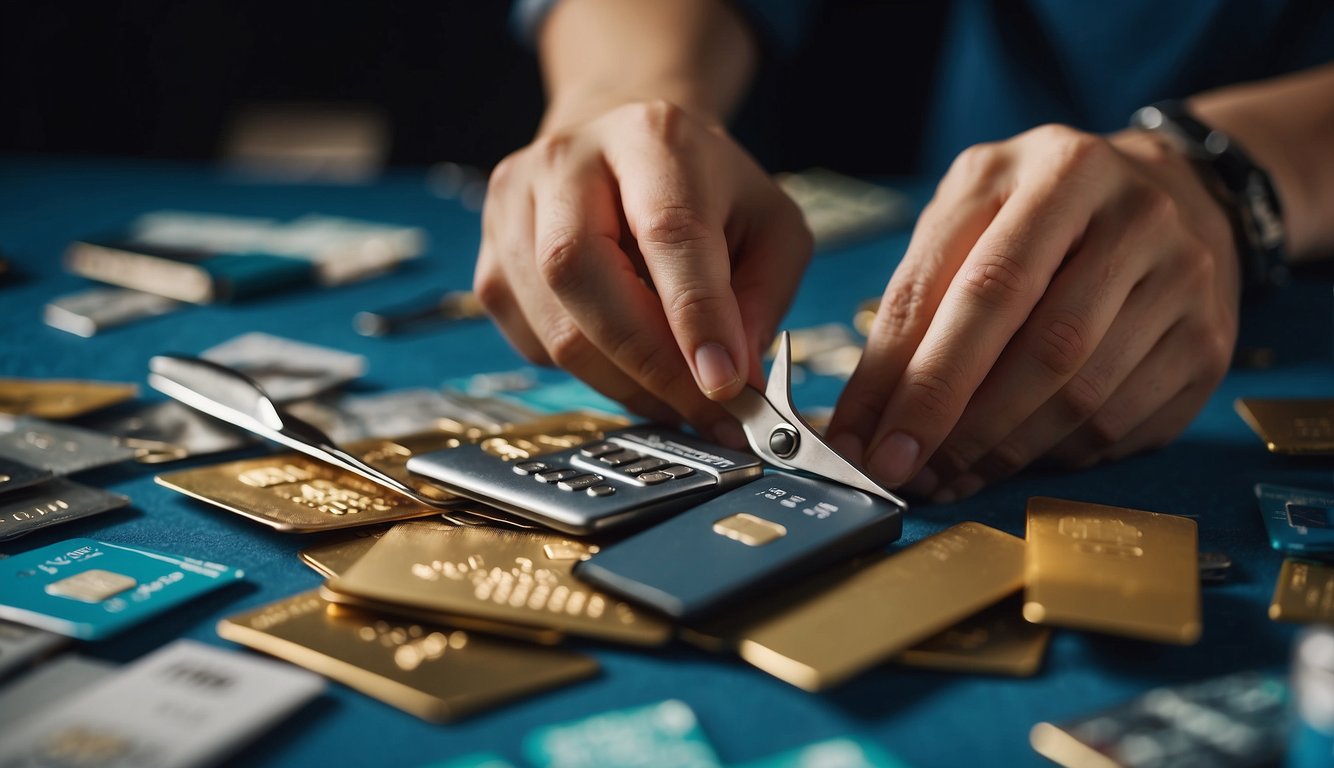
Congratulations! You’ve managed to pay off your personal loan and are now debt-free. But the journey to financial freedom doesn’t end here. Maintaining a debt-free life requires adopting healthy financial behaviours, regularly monitoring credit reports, and staying motivated to avoid new debt.
Adopting Healthy Financial Behaviours
To maintain a debt-free life, you need to adopt healthy financial behaviours. Start by creating a budget and sticking to it. This will help you keep track of your expenses and avoid overspending. You can also automate your savings and bill payments to avoid missing any payments and incurring late fees.
Another healthy financial behaviour is to avoid impulse purchases. Before making a purchase, ask yourself if you really need it or if it’s just a want. If it’s a want, consider waiting a few days to see if you still want it before making the purchase.
Get Out of a Personal Loan: Regularly Monitoring Credit Reports
Regularly monitoring your credit reports is important to ensure that there are no errors or fraudulent activities. You can get a free credit report from credit reference agencies such as Experian, Equifax and TransUnion.
Review your credit report for any errors or discrepancies, such as incorrect personal information or accounts that you don’t recognise. If you find any errors, report them to the credit reference agency immediately.
Staying Motivated and Avoiding New Debt
Staying motivated to maintain a debt-free life can be challenging, but it’s important to remember the benefits of being debt-free. You now have more control over your finances, and you can put your money towards your goals and dreams.
To stay motivated, set new financial goals for yourself, such as saving for a down payment on a house or building an emergency fund. You can also reward yourself for reaching your goals, such as treating yourself to a nice dinner or a weekend getaway.
Finally, avoid new debt by being mindful of your spending habits. Stick to your budget and avoid taking on new loans or credit cards unless it’s absolutely necessary. Remember, being debt-free is a journey, and it requires discipline and commitment to maintain.
Frequently Asked Questions
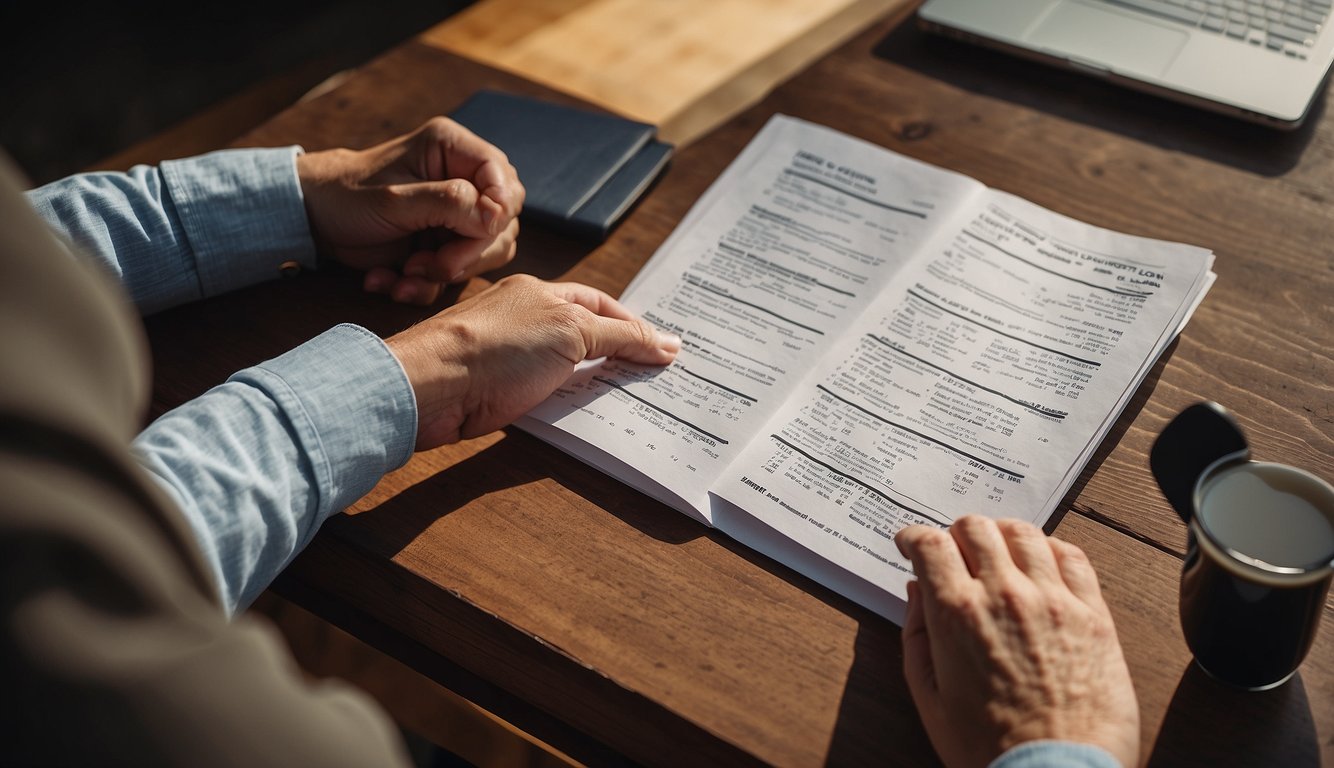
What are the top strategies for rapid debt repayment on a tight budget?
If you’re on a tight budget, you can still use several strategies to pay off your loan quickly. One of the most effective is the snowball method. This involves paying off your smallest debts first, then working up to the larger ones.
Another strategy is to negotiate with your lender for a lower interest rate. You can also look into balance transfer credit cards or personal loans with lower interest rates to consolidate your debt and make it more manageable.
Can debt consolidation simplify my finances and hasten my journey to becoming debt-free?
Debt consolidation can effectively simplify your finances and pay off your personal loan more quickly. By consolidating your debt into one loan, you can reduce your interest rate and make your monthly payments more manageable. This can help you get out of debt faster and save money in the long run.
What grants or assistance programmes are available to help clear my debts quickly?
Several grants and assistance programmes are available to help you clear your debts more quickly. For example, the Debt Arrangement Scheme in Scotland allows you to pay off your debts over a more extended period, while the Citizens Advice Bureau can offer free debt advice and support. You can also look into debt relief orders or bankruptcy as a last resort.
What’s the fastest method to pay off significant personal loan debt, such as £40,000?
If you have significant personal loan debt, the fastest way to pay it off is to increase your income and reduce expenses. You can do this by taking on a second job, selling unwanted items, or cutting back on unnecessary costs.
You can negotiate with your lender for a lower interest rate or consider debt consolidation to make your payments more manageable.
How can someone with no funds and poor credit tackle their debt effectively?
If you have no funds and poor credit, tackling your debt effectively can be challenging. However, there are still several strategies you can use. One is to negotiate with your lender for a lower interest rate or a payment plan that works for you.
You can also look into debt counselling or management plans to get the support you need to pay off your debts.
Are there any proven techniques to eliminate debt within six months, even with limited resources?
Eliminating debt within six months is challenging, but it is possible with the right strategies. One technique is to use the snowball method to pay off your smallest debts first, then work up to the larger ones.
You can negotiate with your lender for a lower interest rate or consider debt consolidation to make your payments more manageable. Additionally, increasing your income and reducing expenses can help you pay off your debt more quickly.

